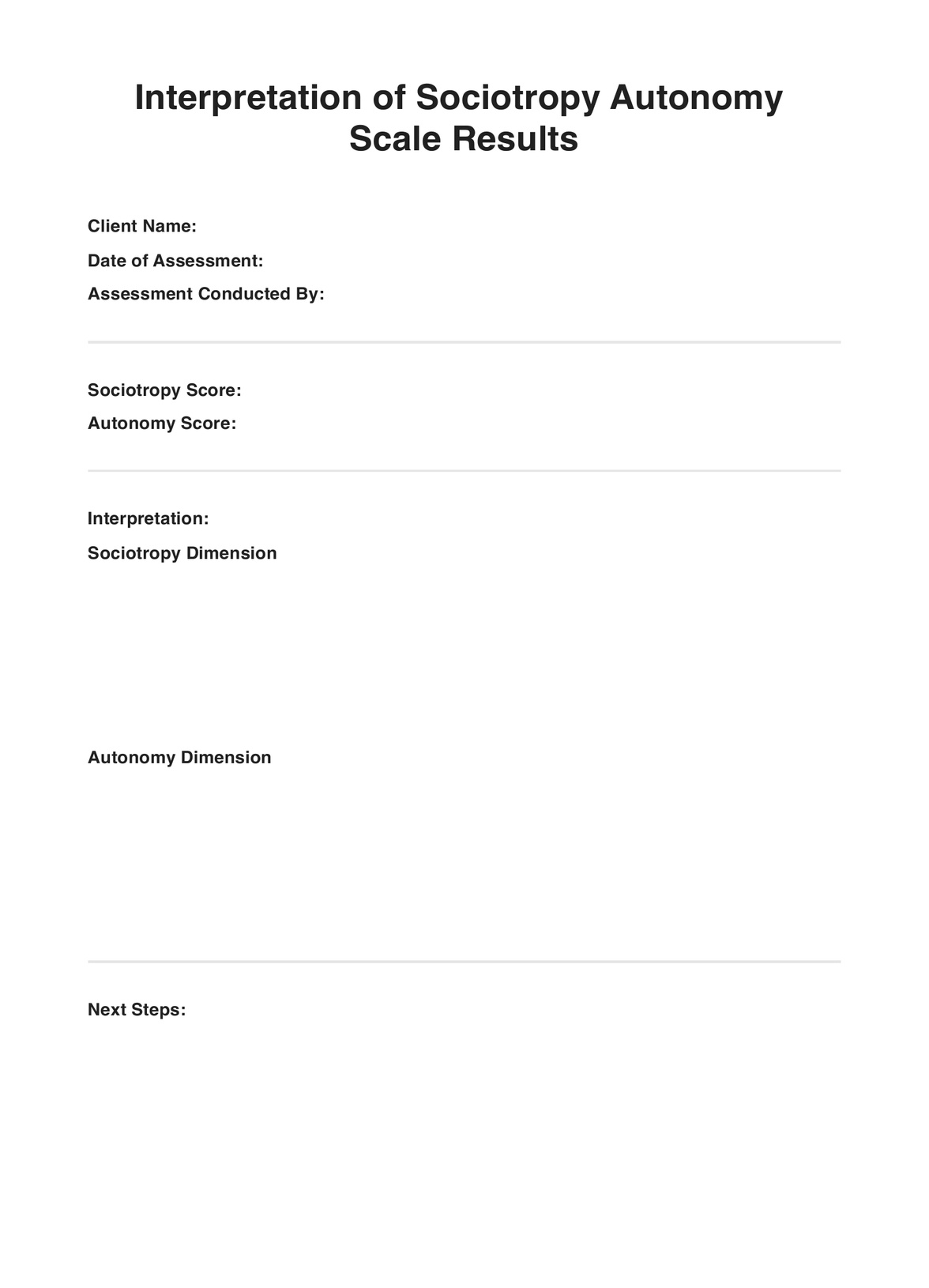The Sociotropy Autonomy Scale (SAS) consists of 60 items and typically takes 15-20 minutes to complete. However, the time may vary depending on the individual's pace and comprehension.

Sociotropy Autonomy Scale
Discover the benefits of the Sociotropy Autonomy Scale in shaping effective mental health treatment strategies. Unlock actionable insights, and improve well-being to better understand yourself and the inner workings of your personality.
Sociotropy Autonomy Scale Template
Commonly asked questions
Each item on the SAS is rated on a five-point Likert scale. The scores for the sociotropy and autonomy dimensions are calculated separately by adding the individual item scores. Higher scores indicate a stronger tendency towards either sociotropy or autonomy. These scores should be interpreted by a trained professional who can contextualize the results within the broader assessment of the individual's mental health.
The SAS is used in various settings, including initial psychological evaluations, ongoing therapy or counseling sessions, and mental health research. It is designed to measure an individual's tendencies towards sociotropy and autonomy, which can help identify potential vulnerabilities to mental health disorders like depression.
EHR and practice management software
Get started for free
*No credit card required
Free
$0/usd
Unlimited clients
Telehealth
1GB of storage
Client portal text
Automated billing and online payments











